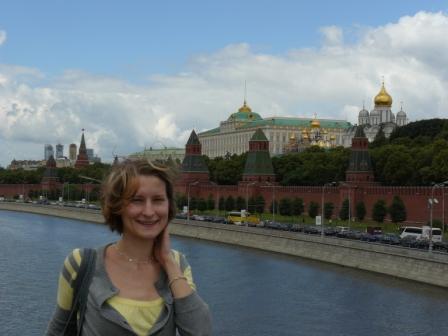Remarks on William Sweet’s “Europe’s “Far East”: the Uncertain Frontier.”
1. First of all, it is unprofessional for the political observer to use “Big Brother” (“superior to inferior”) approach to political analysis of the foreign policy of another country. To point out that Russia’s foreign policy “depends on the whims of a narrow and cloistered leadership” is to acknowledge the incapability of seeing the causes behind the political actions of Russia’s leaders. Maybe, it is worth to put yourself in the position of the government of the analyzed country to get better insight into its foreign policymaking, so it would not seem as a whim? Also, it should be understand that if some political decision of Russia’s government is widely criticized by the global community, it does not necessary mean that this decision is wrong and unwise.
2. In his article the author touches a couple of controversial moments and unproven facts while discussing Russia’s foreign policy. Who was the first to start Russian-Georgian conflict in 2008, the conflict over the transition of Russia’s gas to EU through Ukraine, and the evaluation of “the great famine” in Ukraine at the time of Stalin’s program of collectivization are among those “doublethink” issues. Such kind of facts should be given fairer overview or, at least, the author could have mentioned their uncertain or debatable character instead of showing his readers the side of the question favorable for him, and at the same time withholding the one he does not like.
3. If the author pretends to present an unbiased political analysis of some political situation, he should have avoided such clichés as “nuclear holocaust,” and comparison Russia to the beast or bear. Moreover, mentioning such dubious experts as Vladimir Zhirinovsky or Mayor Yuri Luzhkov, and the usage of the insulting language (“…there are ample opportunities for Russian leaders to fish,” “it wanted to teach country a lesson,” etc.) would be more suitable to cite in a tabloid than the issue of “Great Decisions” intended for student reading.
4. Personally, I do not share author’s opinion about “political and moral values universally shared on both sides of the Atlantic.” I see European values and American ones as two different things, while the American authors always try to pull Europe on their side while talking about democracy and how it should be implemented. I have never encountered such kind of opinion in the articles written by Europeans.
5. In overall, the purpose of the article is rather unclear for me. In my opinion, the article lacks coherent and logical structure because of its undefined purpose. Moreover, the facts, by which the author supports his ideas, have rather fragmentary character, in its turn, this selectivity conceals important information and allows the author to manipulate and to thrust his own opinion on the readers.
Anna Muraveva in front of the Kremlin



No comments:
Post a Comment